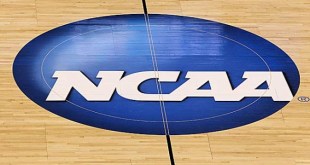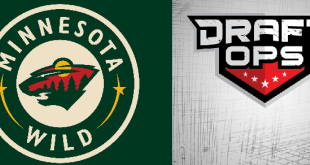Four years ago in Vancouver, hockey fans enjoyed a stirring Olympic tournament capped with one of the greatest hockey games of all time in the Gold Medal game between Canada and the United States. The overtime thriller, won by Canada on a quick shot by Sidney Crosby, was a perfect end for Canada to the Vancouver Winter Games. On Wednesday of this week, the 2014 version will begin and many hope this tournament rivals its predecessor in both its drama and quality of play. 
A few notes to keep in mind about the tournament before we delve into each team. During the preliminary or group stage, the 12 teams in the tournament are divided into three groups and each team will play the other 3 teams in their group. During the group stage, teams will receive points based on a 3 point system, with 3 points awarded for a regulation victory, 2 points for an OT/Shootout victory, 1 point for an OT/Shootout loss, and 0 points for a regulation loss.
After the group stage, each group winner plus the second place finisher with the most points will receive a bye into the quarterfinals. The teams not receiving a bye will face-off in the qualification round, with the winners of each game moving on to face a team that received a bye in the quarterfinals. The tournament becomes single-elimination in the qualification round, with the losers of the semi-finals playing one another in the Bronze-medal game.
With the preliminary stage set to begin, let’s take a look at each group:
Group A: Russia, Slovakia, United States, Slovenia
Russia
The home team for this tournament comes in with the expectation to bring home its first Olympic gold in men’s hockey since 1992. After the dominance of the Soviet teams through the Cold War, it is amazing to think that the Russians have gone over 20 years without gold, and have only been in the gold medal game once, in 1998, since NHL players were allowed to play in the Olympics. This version of the Russian team boasts some of the best forwards in the world in Alexander Ovechkin, Pavel Datsyuk, and Evgeni Malkin. In addition, the Russians have two top notch goaltenders in last year’s Vezina winner Sergei Bobrovsky and in the Colarado Avalanche’s Semyon Varlamov. Even with arguably 3 of the top 10 forwards in the world, the Russians have two major questions coming into the tournament. The first is whether the defensive unit on this team is up to the challenge of shutting down the other top teams. While a player like Andrei Markov is a good NHL defenseman, I am not sure he is good enough to be the top defenseman for a gold medal-winning team. The rest of the defensive core is filled with decent yet underwhelming options and this unit will surely be tested in the second game of the preliminary stage by the United States. The second big question the Russians face is whether they will have enough forward depth after the top two lines. If Russia can get scoring production from its last two lines, likely filled by some of its 9 KHL players, they could be a very dangerous team. Russia’s forward depth could be stretched even more if Pavel Datysuk, battling a lower body injury for the past few weeks, cannot play at a high level. While each game will be a home game, the Russians will face enormous pressure if they trail or are tied with one of the underdogs. How the Russians deal with that pressure could go a long way in deciding how far they go in this tournament.
Slovakia
In 2010, the Slovakians lost to Canada in the semi-final and then to Finland in the Bronze-medal game for a fourth place finish. This year, Team Slovakia is dangerous, but after some injuries to top winger Marian Gaborik, a repeat fourth place finish would be quite a surprise. The Slovakians are led by three top NHL players in Marian Hossa, Zdeno Chara, and Jaroslav Halak. Each player has enjoyed NHL playoff success, with Hossa winning a pair of Stanley Cups with the Chicago Blackhawks, Chara winning the 2011 Stanley Cup with the Boston Bruins, and Halak leading the 2010 Montreal Canadians to the Eastern Conference final. For Slovakia to contend in Group A or to make the semi-finals once again, these three will have to dominate. If Halak can replicate his 2010 form, where he was virtually unbeatable, then the Slovaks have a chance to make run. However, even if Halak can stand on his head, and Hossa can generate enough scoring single-handedly, its still unclear whether the players surrounding these three superstars will be able to hold off the depth of the top teams.
United States
In the last three Olympics, the US Men’s hockey team has twice taken home the Silver medal, both times losing to Canada in the Gold-medal game. However, both of those medals were won on North American soil in Salt Lake City and Vancouver. In the NHL-player era, the United States has struggled when outside North America, finishing poorly in both Nagano in 1998 and Turin in 2006. This United States team is, on paper, the best US team ever assembled, with world class goaltending, scoring depth, and a quick, fundamentally sound defensive unit. The questions for this team will be whether it can adjust to the bigger Olympic rink size (rather than the NHL sized rink played on in Salt Lake City and Vancouver) and if the inexperience of the defenseman will come back to haunt the US team. Choosing defenseman who can move the puck quickly and had the speed to handle the bigger ice means that 2010 veteran defensemaen Jack Johnson and Erik Johnson will be watching the games from the comfort of their couches. Olympic newcomers Kevin Shattenkirk, Justin Faulk, Cam Fowler and John Carlson have the skill to play well on the Olympic ice; the question will be whether they can handle the pressure of a tough quarter-final or semi-final matchup. They will be tested by Marian Hossa in the first game and the top Russian forwards in the second. If these defenseman can handle the skill of those players and whoever Coach Dan Bylsma chooses as his net-minder, either Jonathan Quick and Ryan Miller, plays to the level expected, than the United States could win their first Olympic Gold since the Miracle on Ice team in 1980.
Slovenia
This is Slovenia’s first time qualifying for the men’s Olympic hockey tournament and not much is expected of this team in their debut. Los Angeles Kings forward Anze Kopitar is the top player on this team and will have to have an all-time performance for this team to have a shot at making the semi-finals. Stealing a win during the group stage against any of the teams in this group should be considered a success.
Group B: Finland, Canada, Norway, Austria
Finland
While Team Finland has come away with a medal in 3 of the 4 tournaments that included Olympic players, the Finns are often overlooked as a gold medal contender. This tournament is no different, as Team Finland enters the tournament without its best player, Mikko Koivu, who is out with an injury. In addition, Valteri Fillipula will also be unable to play for the Finns due to injury. With two of their top forwards out, Team Finland must rely on its excellent goaltending trio of Tuukka Rask, Antti Niemi and Kari Lehtonen, along with strong team defense, if they hope to advance far in this tournament. Tuukka Rask is expected to get the call between the pipes, and if he, or whomever starts in net during the knockout rounds, plays at the top of his game, the rest of the Finnish team could have enough experience to win a pair of low-scoring games to find themselves in a medal round game for the 4th time in 5 Olympics.
Canada
The defending gold medalists are the most stacked team on paper as we head into the tournament. P.K Subban, last season’s Norris Award winner, is likely a third pair defenseman. Martin St. Louis, the Canadian NHL player with the most points over the last 4 seasons, only made this team after his Tampa Bay Lightning teammate Steven Stamkos could not recover in time from a broken leg. A team made up of Canadians left off this team would have as good a chance as almost any other team in this tournament of reaching the medal round. However, this is still a single-elimination hockey tournament where goaltending will most likely be the key. Compared to the other main contenders (and the rest of its lineup) Canada’s goaltending trio of Roberto Luongo, Carey Price and Mike Smith does not stand out. Four years ago Luoungo was in net on the run to gold, but Coach Mike Babcock has said he will give both Luoungo and Price an opportunity in the preliminary round before deciding on a starter. In addition, even with the plethora of forward talent on Team Canada, Steven Stamkos’ absence will be felt as he is likely the best pure goal scorer from Canada today. With that said, Canada has to be the favorite to win Group B and one of the top 3 favorites to bring home gold.
Norway
Norway comes into the tournament with only one current NHL player, Mats Zuccarello, and the expectations to match. Though this team did almost beat Switzerland in 2010, Norway is likely looking at a 4th place finish in this group. While it would be a surprise if this team made the quarterfinals, their group stage games against Finland and Canada could provide an early sneak peek into whether Finland will have the scoring to compete in the knockout rounds and whether Canada has adjusted to the bigger Olympic ice surface.
Austria
Led by NHLers Thomas Vanek, Michael Grabner and Michael Raffl, this team also has low expectations heading into the tournament. While most of the world will be watching their games against Canada and Finland to find out about their opponents, the game against Norway should be an exciting affair as both teams battle in their best chance for a group stage victory. The simple fact that Austria is in the tournament is a success, so a victory of any kind would be icing on the cake for this up and coming hockey country.
Group C: Czech Republic, Sweden, Switzerland, Latvia
Czech Republic
Most hockey fans remember the epic run to gold by the Czech Republic team in the 1998 Olympics. That amazing tournament was led by Domink Hasek’s out of this world goaltending and timely offensive contributions from Jaromir Jagr. While the 1998 team made its name by winning a 1-0 Gold Medal game against the Russians, this version of Team Czech Republic will have to score a ton of goals to cover for a weak defense and a shaky goaltender. While Ondrej Pavelec is being paid franchise goalie money by the Winnipeg Jets, he has not yet played up to his salary. If the Czech’s are to compete, they will need Pavelec to cover for a weak defensive core led by Zbynek Michalek. If the defense can hold, a forward group including New Jersey Devils’ top scorer Jaromir Jagr, David Krejci, Patrik Elias, Martin Hanzal, and Alex Hemsky should be able to score enough to keep this team in every game and secure at least a second place finish in Group C. However, even with a favorable knockout matchup, I don’t see this team having the defense to handle the scoring punch they will likely face in the quarterfinals.
Sweden
The 2006 gold medal winners are once again stacked and ready to win gold on European ice. The revitalized Henrik Lundqvist backstops a team with arguably the top defensive group, led by Niklas Kronwall and Erik Karlsson, in the tournament. The incredibly skilled forward group includes Nicklas Backstrom, Henrik Zetterberg, Daniel Alfredsson, Alexander Steen and, oh ya, Daniel Sedin. All of the players on this team have grown up playing on Olympic size ice, and they showed that they had a system to take advantage of their teams skill and finesse on the big ice in 2006. With that said, losing Henrik Sedin and Johan Franzen to injury would hurt any Olympic team, and the other forwards will have to step up to fill the void left by those two top forwards. Sweden should cruise through Group C and is a strong contender for the gold. If the forwards can provide enough scoring punch, this team could win gold.
Switzerland
This is an up and coming team with a strong defensive system that has helped them almost pull upsets in the past couple Olympic tournaments. Now that Team Switzerland has a top NHL talent in net in Jonas Hiller, and a strong defense led by Mark Streit and Raphael Diaz, the Swiss could be a dark-horse to make the medal round. The big question will be whether they can score enough to hang with a top-level team. If Switzerland can beat the Czech’s on Valentine’s Day, they could sneak into the last bye or come away with an easy draw in the first knockout round. Either way, every top team would prefer to avoid this Swiss team in the knockout round.
Latvia
Sandis Ozolinsh, the 41-year old former NHL defenseman is playing for this team and might be their best player. It should be no surprise this team will likely have difficulty getting a win in the Group or knockout stages, but the highlights of former goalie Artus Irbe and his awesome pads should be reason enough to catch their games.
Predictions
Rather than try to predict each game of the tournament and inevitably get all the picks incorrect, I am just going to categorize the teams into a few groups based on my thoughts on their potential in the tournament.
The top group is made up of Canada, Sweden, and the United States. All three have few weaknesses and many of the best players in the world. It would be a surprise if at least two of these teams weren’t playing in the medal rounds.
The second group is Russia, Finland, and Switzerland. All three of these teams can beat the teams in the first group on any given day, but I am not sure I see any of these teams capable of winning 3 (or 4) single elimination games in a row to bring home the gold.
The third group is Czech Republic and Slovakia. I can see both of these teams being pesky in the group stages and possibly stealing points in a game against the teams above early in the tournament.
Finally, Norway, Slovenia, and Latvia round out the teams and I would be surprised if any of them even made the quarterfinals.
 The Sports Esquires Putting Sports on Trial
The Sports Esquires Putting Sports on Trial





